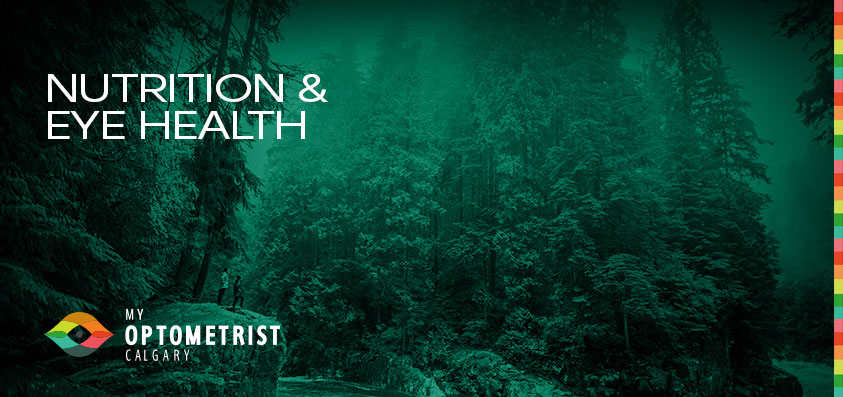

Omega-3 fatty acids are considered essential because our bodies cannot produce them. They must be ingested through the foods we eat. Omega-3 is important for optimal brain and nervous system health, boosting the immune system, and for visual development and health of the retina.
Fat-soluble vitamins A, C, and E are essential for optimal eye health.
Lutein and zeaxanthin are important nutrients that act as antioxidants and counteract the effects of detrimental short-wavelength blue light that can speed up the progression of macular degeneration and cataracts.
Overall, what is good for our bodies is good for our eyes. Eating a nutrient-rich diet that supports vascular and neurological functions will be beneficial to your body, and your eyes. Taking ocular or multivitamins may compliment your daily diet for the following reasons:
It is best to use vitamin brands that adhere to formulations designed from the internationally recognized Age-Related Eye Disease Study (AREDS and AREDS2), sponsored by the National Eye Institute. It is best to stay with brands that have known quality controls and safe ingredient resources.
AREDS formulas include an appropriate balance of lutein and zeaxanthin, vitamin C and vitamin E, and copper and zinc. Most nutrients work best in combination with other nutrients, so taking single nutrients is not as well studied. It is understood that the specific vitamins and nutrients may play a key role in reducing inflammation and oxidative changes associated with the development of degenerative diseases, including chronic and age-related eye problems.
Ocular vitamins have higher doses of certain vitamins than in general multivitamin formulations. Please make sure you consult your optometrist, family doctor, or pharmacist if you also need other vitamins to ensure you do not take too much of one thing.
Connect With Us Today!
Our Eye Care Professionals are thrilled to serve the Calgary and Three Hills, Alberta area for over 35 years! With our main floor access, vast medical eye care services, and enhanced supplier choice and selection for frames, prescription eyeglass lenses and contact lenses, we've got you covered. Book an appointment online, come see us in person, or shop for your eye care products. Reach out today!